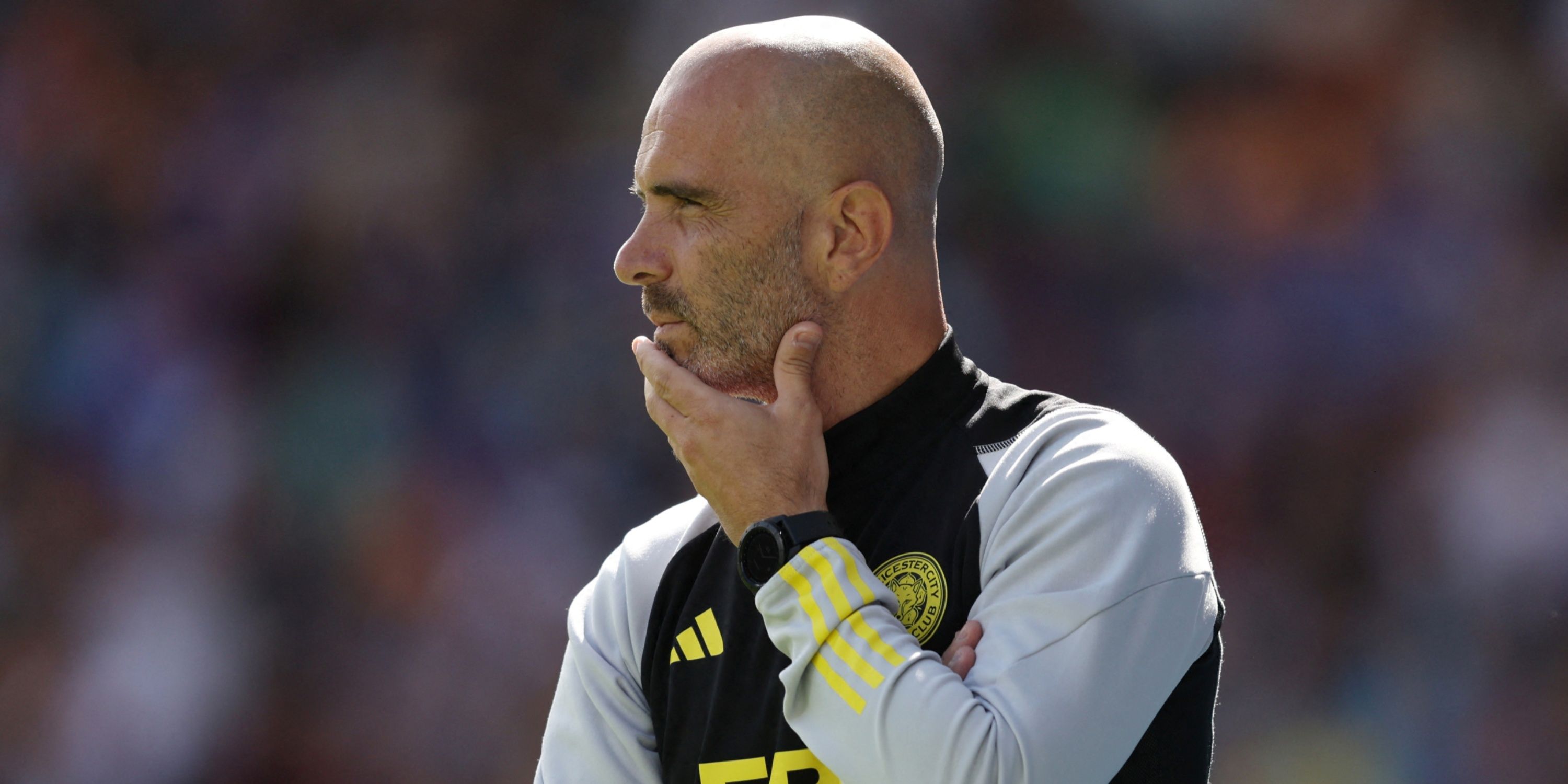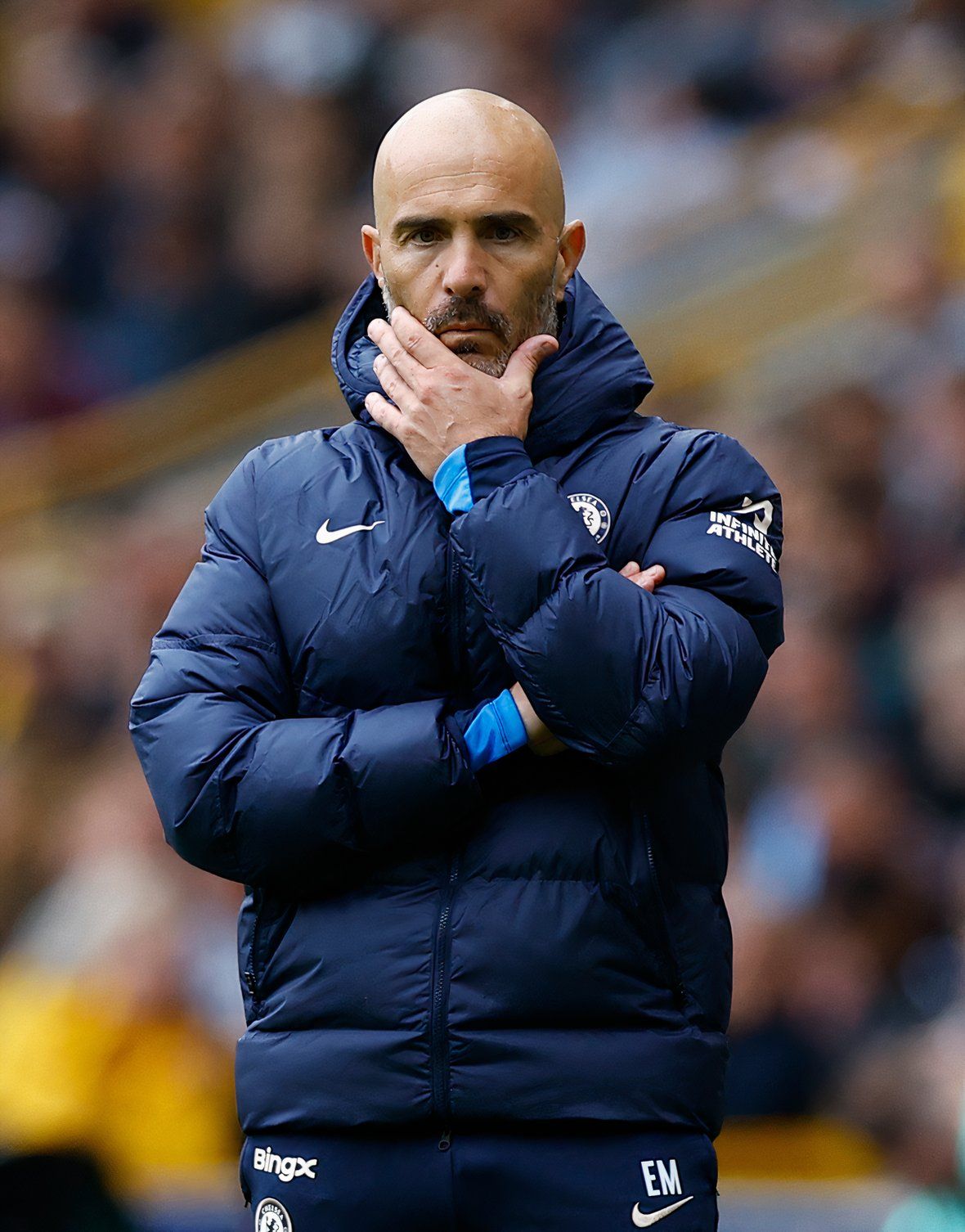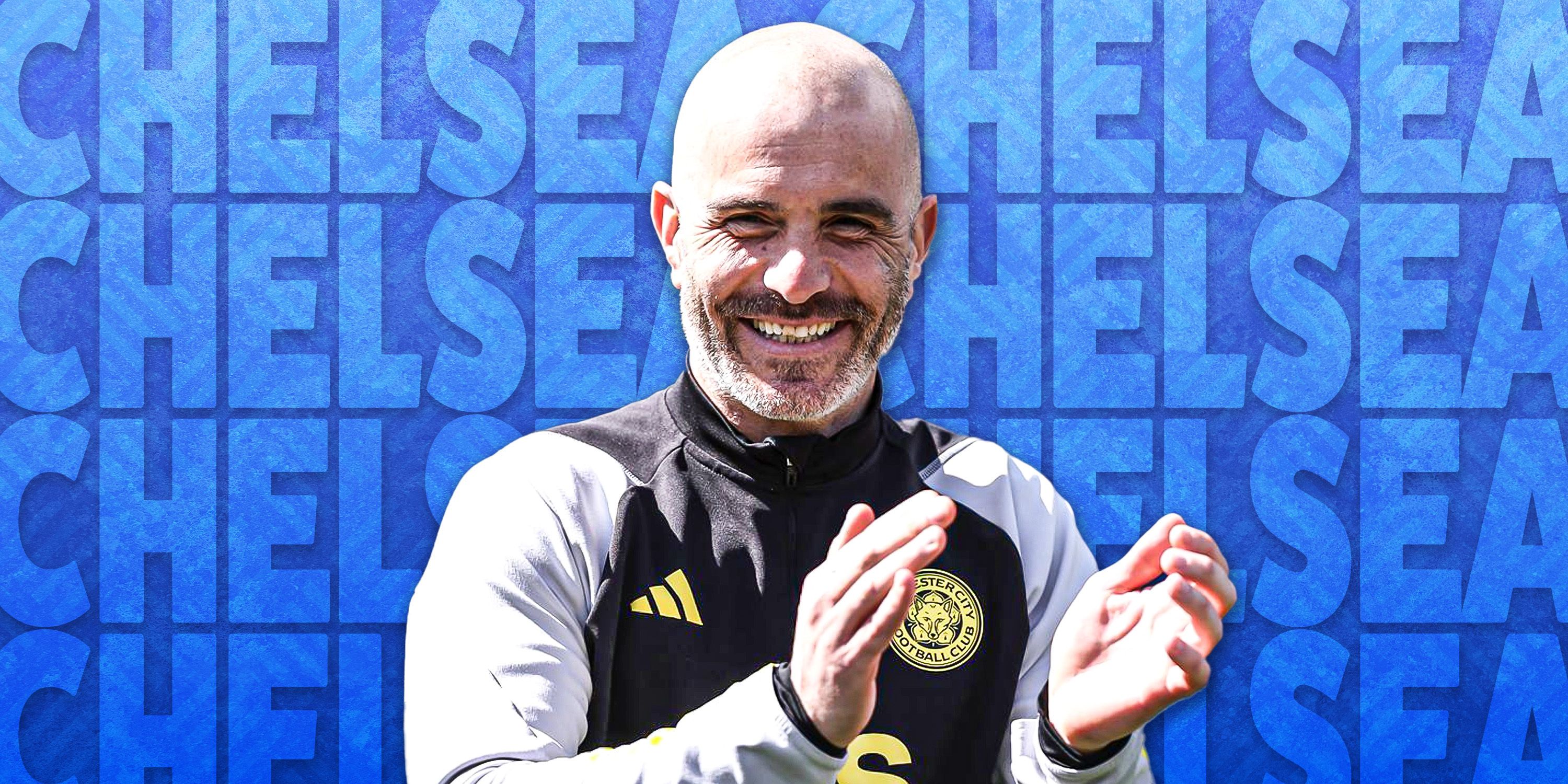There's a new name making waves in the world of Premier League football management, and it's someone whose journey, you know, has been quite a fascinating one. Enzo Maresca, a name now firmly associated with top-tier English football, brings a unique blend of playing experience and coaching insight to his current role. This Italian professional, born on February 10, 1980, has really, quite recently, taken the reins at a major Premier League club, marking a significant moment in his career.
His path to this prominent position, it's almost, a story of dedication and a deep understanding of the game. From his early days as a player, starting out with West Bromwich Albion, to his various coaching roles across different clubs, Maresca has consistently shown a knack for development and strategy. People are really interested in how he approaches the game, and what he brings to the table, especially now at such a high level.
This article aims to give you a good look at Enzo Maresca, covering his background as both a player and a coach. We'll explore his career trajectory, his philosophy, and what makes him, perhaps, a very intriguing figure in football right now. You'll get to see, basically, the details of his journey, and why he's considered such a compelling choice for a Premier League team, you know, at this point in time.
Table of Contents
- Enzo Maresca: A Football Journey
- Personal Details and Bio Data
- From Midfielder to Manager: Maresca's Playing Days
- The Rise of a Coach: From Assistant to Head Honcho
- Leicester City: A Championship Masterclass
- The Chelsea Challenge: New Beginnings at Stamford Bridge
- The Mind of a Manager: Football and Chess
- A Look at the Numbers: Coaching Success Rate
- What Players Say: Inside the Dressing Room
- Looking Ahead: Enzo Maresca's Impact
- Frequently Asked Questions About Enzo Maresca
Enzo Maresca: A Football Journey
Enzo Maresca, a name that's been on many people's lips lately, especially if you follow English football, has had, you know, a pretty extensive career in the sport. He was born on February 10, 1980, in Pontecagnano Faiano, which is in the province of Salerno, Italy. His journey in football started quite early, and it's been a long one, encompassing both his time as a player and now, obviously, his significant role as a manager. He's an Italian professional, and his story really shows a deep connection to the game, from the pitch to the dugout.
As a player, he spent time in various clubs, carving out a career as a central midfielder. This experience on the field, actually, is something that many believe has shaped his approach to coaching. He's been through the grind of being a professional footballer, understanding the demands and the nuances of the game from a player's perspective. That, in a way, gives him a unique insight when he's leading a team, you know, on the training ground and during matches.
Transitioning from player to coach, Maresca didn't just jump into a head role. He spent time learning, developing his ideas, and working as part of various coaching staffs. This gradual ascent, you know, from assistant roles to finally taking the top job, really highlights his commitment to mastering the craft of management. His journey, you know, is quite an example of patience and continuous learning in a very demanding profession.
Personal Details and Bio Data
For those curious about the man himself, here's a quick look at some key details about Enzo Maresca. This information, you know, gives a bit more context to his background and where he comes from.
| Detail | Information |
|---|---|
| Full Name | Enzo Maresca |
| Date of Birth | February 10, 1980 |
| Place of Birth | Pontecagnano Faiano, Salerno, Italy |
| Nationality | Italian |
| Playing Position | Central Midfielder (former) |
| Current Role | Head Coach, Chelsea FC |
From Midfielder to Manager: Maresca's Playing Days
Enzo Maresca's professional playing career, you know, kicked off in England. As a teenager, he began his journey with West Bromwich Albion in 1998. That was, actually, a pretty significant step for a young Italian player, moving to an English side to start his professional life in football. He spent some time there, gaining valuable experience in a different footballing culture, which, in a way, must have shaped his outlook on the game.
After his spell at West Brom, Maresca played for a variety of clubs across different leagues. He was, fundamentally, a central midfielder, a position that requires a good understanding of the game's flow, tactical awareness, and the ability to link play. These qualities, you know, are often seen as essential for a future manager, as they involve seeing the bigger picture on the pitch. His last club as a professional player was Hellas Verona, and he retired from playing, as a matter of fact, as a central midfielder.
The experience he gathered as a player, navigating different teams, different leagues, and different managers, is, arguably, a cornerstone of his coaching philosophy. He's seen the game from the inside, understanding the dynamics of a dressing room, the pressures of competition, and the various tactical approaches that teams employ. This hands-on knowledge, you know, is pretty invaluable for someone now leading a team from the dugout, giving him a very practical perspective on what works and what doesn't.
The Rise of a Coach: From Assistant to Head Honcho
Enzo Maresca's transition into coaching was, you know, a gradual and deliberate one. He didn't just retire from playing and immediately jump into a top managerial role. Instead, he took the time to learn the ropes, working as part of coaching staffs at several clubs. This period, actually, was crucial for him to develop his own coaching style and understand the intricacies of managing a team from a different vantage point.
His coaching journey included stints at Ascoli, Sevilla, and West Ham United. These experiences, you know, provided him with a broad exposure to different footballing environments and methodologies. Working under various head coaches, he would have absorbed different ideas and approaches to training, tactics, and player management. It's a bit like an apprenticeship, really, where you learn from those who have been there before you.
A particularly notable period in his coaching development was his time as an assistant to Pep Guardiola at Manchester City. Guardiola is, you know, widely regarded as one of the best managers in the world, and working alongside him would have provided Maresca with an incredible learning opportunity. This experience, arguably, gave him insights into the workings of a highly successful, top-tier club and the tactical philosophies that drive sustained success. It's safe to say, that, this was a very formative period for him, shaping his ideas on how to build and manage a winning team.
Leicester City: A Championship Masterclass
Before his big move to Chelsea, Enzo Maresca had a very significant spell as the head coach of Leicester City. He arrived at the club, you know, with, perhaps, what some might consider low expectations, especially given it was his first major head coaching role in England and the team had just been relegated from the Premier League. The challenge was clear: get Leicester back into the top flight, and he did, as a matter of fact, achieve just that.
His time at Leicester City in the Championship was, in some respects, a masterclass in management. He helped the Foxes get promoted back to the Premier League in just one year, which is, you know, a pretty impressive feat. This achievement demonstrated his ability to implement his tactical vision and get results under pressure. It showed that he could take a team, rebuild it, and guide it to success in a very competitive league.
The promotion with Leicester, really, put him on the map as a manager to watch. It highlighted his capacity to instill a clear playing style, motivate players, and navigate the challenges of a demanding season. This success, you know, was a strong testament to his coaching abilities and his potential to manage at the very highest level of English football. It was, basically, the perfect stepping stone for his next big challenge.
The Chelsea Challenge: New Beginnings at Stamford Bridge
Chelsea's search for a new head coach, you know, was quite a talked-about topic for a while, and it ended with the appointment of Enzo Maresca. This move, arguably, raised some eyebrows for several reasons, especially considering the club's recent history and the expectations that come with managing a team like Chelsea. Maresca takes over after leading Leicester back to the Premier League, which, as we've discussed, was a very strong credential.
His arrival at Chelsea, you know, came at a time when Mauricio Pochettino, the previous manager, seemed to have finally found a winning formula. This context, in a way, added an extra layer of scrutiny to Maresca's appointment. However, Chelsea's decision to hire him suggests a clear belief in his vision and his ability to build something special at Stamford Bridge. He is now the head coach of this Premier League club, a very significant role in his career.
The challenge at Chelsea is, perhaps, immense. It involves not just managing a squad of high-profile players but also implementing a cohesive playing style that delivers consistent results. The club's ambitions are always high, and Maresca's task is to meet those expectations. It's a huge opportunity, you know, for him to prove himself at one of the biggest clubs in English football, and fans are, naturally, very keen to see how he approaches this new chapter.
The Mind of a Manager: Football and Chess
Enzo Maresca's approach to football is, you know, quite intriguing, and it's perhaps best encapsulated by something very specific: his thesis. He wrote his thesis at Coverciano, which is the Italian Football Federation's coaching school, on the topic of "football and chess." This comparison, actually, gives us a pretty good insight into how he views the game and his tactical philosophy.
The idea of football as chess suggests a very strategic and calculated approach. Just like in chess, where every move has consequences and requires foresight, Maresca likely sees football as a game of intricate patterns, movements, and counter-movements. It's about anticipating the opponent, controlling the board (or the pitch), and executing a well-thought-out plan. This perspective, you know, implies a focus on positional play, intelligent movement, and controlling the flow of the game.
This "football and chess" concept, arguably, indicates a manager who values tactical discipline, intelligent players, and a clear structure. It's not just about individual brilliance but how all the pieces work together to achieve a collective goal. It's, basically, a very cerebral approach to the sport, where the mental aspect and strategic planning are given significant importance. This philosophy, you know, is something that will surely be evident in how his Chelsea team plays.
A Look at the Numbers: Coaching Success Rate
When we talk about a manager's effectiveness, one of the metrics people often look at is their win percentage. For Enzo Maresca, across his coaching career thus far, he has a win percentage of 60.53%. This figure, you know, is a pretty strong indicator of his success rate in the various coaching roles he's held. It suggests that his teams, generally, win more often than not, which is, obviously, what every club wants.
A win percentage over 60% is, in fact, quite impressive for any manager, especially considering the different levels and challenges he's faced. It reflects his ability to prepare teams effectively, implement winning strategies, and get the best out of his players. This statistic, you know, provides a tangible measure of his performance and validates the trust placed in him by clubs like Leicester and now Chelsea.
While win percentage is just one statistic, it does, basically, paint a picture of a manager who consistently delivers positive results. It's a testament to his tactical acumen and his leadership qualities. This number, you know, gives fans and analysts something concrete to consider when evaluating his impact, and it's certainly a promising sign for his future endeavors at Chelsea.
What Players Say: Inside the Dressing Room
Understanding a manager's impact often involves hearing from the players themselves. A new Chelsea signing, for example, has already shared his verdict on Enzo Maresca as a coach. This player, you know, expressed a desire to play in the Champions League, and his positive comments about Maresca suggest a belief that the new coach can help achieve those ambitions. This kind of feedback, arguably, is very important.
When players speak positively about a coach, it typically indicates that the manager has a good rapport with the squad, can communicate his ideas effectively, and inspires confidence. It suggests that Maresca is able to connect with his players and get them on board with his vision. This is, you know, a crucial aspect of modern football management, where player buy-in is absolutely essential for success.
The goalkeeper situation at Chelsea, for instance, has been a topic of much discussion in recent months. However, it seems that Enzo Maresca's problems in that area may have finally been solved, which could be, you know, a sign of his proactive approach to squad management and addressing key areas. Player endorsements and the ability to resolve team issues, basically, highlight a manager who is not just tactically astute but also good at managing personalities and building a cohesive unit. This is, in a way, very promising for Chelsea's future under his guidance.
Looking Ahead: Enzo Maresca's Impact
Enzo Maresca's arrival at Chelsea marks a new chapter, not just for him but for the club as well. The appointment, as we've noted, initially raised some eyebrows, but his track record, particularly with Leicester City, speaks volumes. He's a manager who, you know, has demonstrated the ability to get a team promoted to the Premier League, which is a very difficult task in itself. This suggests he possesses the qualities needed to succeed at the highest level.
The "why Enzo Maresca has turned into the perfect manager for Chelsea" argument, you know, is gaining traction. It's about more than just results; it's about the philosophy he brings, the tactical approach, and his experience working under top coaches like Pep Guardiola. His background as a former assistant to the Manchester City manager, for instance, is seen as a significant asset, potentially bringing a winning mentality and a clear playing identity to Stamford Bridge.
As the season progresses, people will be watching closely to see how Maresca implements his ideas and shapes the Chelsea squad. His journey, you know, from a promising young player to a Premier League head coach, is a compelling one. He's now at a club with high ambitions, and the focus will be on how he navigates the challenges and builds a team that can compete for top honors. It's, basically, an exciting time for Chelsea fans, and a big moment for Enzo Maresca.
Frequently Asked Questions About Enzo Maresca
People often have questions about prominent figures in football, and Enzo Maresca is no exception. Here are some common queries that fans and observers often ask about him, you know, to get a better grasp of his career and his role.
Who is Enzo Maresca?
Enzo Maresca is an Italian professional football manager and former player. He was born on February 10, 1980, and is currently the head coach of Premier League club Chelsea. He played as a central midfielder during his career, starting out at West Bromwich Albion, and has since moved into coaching, working his way up through various assistant roles before taking on head coaching positions.
What clubs has Enzo Maresca managed?
Enzo Maresca has been the head coach of Leicester City, where he successfully led them back to the Premier League. Before that, he held coaching staff positions at clubs like Ascoli, Sevilla, and West Ham United. He also notably served as an assistant to Manchester City manager Pep Guardiola, which, you know, was a very important part of his development as a coach.
What is Enzo Maresca's coaching style?
Enzo Maresca's coaching style is often described as very tactical and possession-based, with a strong emphasis on strategic play. His thesis on "football and chess" suggests a cerebral approach, focusing on intelligent movement, positional discipline, and controlling the game. He aims to build teams that are well-organized, proactive, and capable of dominating matches through smart play. You can learn more about his philosophy on our site, and also check out other managerial profiles to compare styles.
For more detailed information on his playing and coaching statistics, you can often find comprehensive profiles on reputable football statistics websites. For instance, a good source for detailed performance data, filtered by season, club, league, and competition, is available on sites like Transfermarkt, which provides a very thorough overview of his career.
The site lists all clubs he coached and all clubs he played for, giving a pretty full picture of his journey in football. Manager profile pages, you know, often include details like points per match, performance over time, and career history, which are very helpful for understanding a coach's track record.



